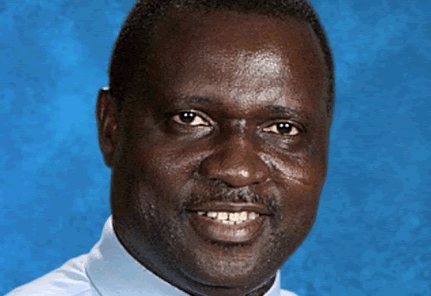Government committed to promoting Inclusive Education – Deputy Minister

The Government is committed to promoting a more Inclusive Educational system to provide learning opportunities for all children, especially those with disabilities.
Dr Yaw Osei Adutwum, a Deputy Minister of Education, in-charge of Basic and Secondary Education, said Inclusive Education would provide the opportunity for every child, irrespective of the child’s circumstances or conditions, to be part of mainstream educational system.
He said to realise Inclusive Education requires a number of different factors, such as a conducive school environment, appropriate curricula, child centred pedagogy, provision of adequate educational resources, support services and community partnerships.
Dr Adutwum made these remarks at the Inclusive Education Ghana Forum, organised by the British Council in Accra.
Ghana’s Inclusive Education Policy is guided by core objectives, including improving and adapting education and related systems and structures to ensure the inclusion of all learners particularly learners with special educational needs.
Others are to promote a Universal Design for Learning (UDL)/learner friendly school environment for enhancing the quality of education for all learners.
The rest are to promote the development of a well informed and trained human resources cadre for the quality delivery of Inclusive Education throughout Ghana and to ensure sustainability of Inclusive Education implementation.
Dr Adutwum said in addition, the standards and guidelines provide guidance to educational institutions and stakeholders in the provision of minimum standards and the design of facilities in terms of physical infrastructure, learning equipment and materials, as well as curriculum and pedagogy to promote Inclusive Education.
He said the policy and its accompanying document sought to create a school environment which was physically safe, emotionally secure and psychologically enabling for all children, including those with special education needs to fully participate in the educational process.
He said the United Nations Universal Declaration of Human Rights had identified access to quality education as a basic right for all children.
He said besides, the right of every child to education was enshrined in the 1992 Constitution of Ghana and had been reaffirmed by the World Declaration on Education for all.
“These landmark decisions make the provision of education mandatory for governments, agencies and allied bodies in the country to ensure that the policies and practices respond to the diverse learning needs of children in our communities,” he said.
He said the Ghanaian traditional approach to Education For All had been to provide education to children with disabilities in special schools, thus, such children with disabilities were placed in special schools which were built around medical model of segregation; declaring that “this system placed a huge barrier to the realisation of Education For All”.
He noted that it was therefore, important for stakeholders to look for a more effective means of ensuring education for all children, including those with disabilities and those with special education needs.
Dr Adutwum said inclusive education was perceived as a viable alternative for providing effective education for all children, including those with disabilities and special education needs.
He said Ghana as a member state of UN, had since ratified this convention with the hope of creating inclusive schools in an increasingly inclusive society.
He said to this effect, a number of acts/conventions had been passed in response to the international commitment; these include but were not limited to; the Education Act 778 (2008), Ghana Government Education Strategic Plan 2010 to 2020, among others, to sow the seed for the concept and practice of Inclusive Education in Ghana.
Mr Alan Rutt, Director, British Council, said the forum’s aim was to guarantee stakeholders in inclusive education in Ghana; so that they could further understand the lines and objectives in their programmes.
He said they were keen to share their experiences and their expertise in order to support Ghana’s Inclusive Education agenda and policy implementation.
He said the British Council’s Connecting Classroom programme supports teacher development in the teaching of core skills and also supports the development of policies and practice around inclusive pedagogy.
Source: GNA
